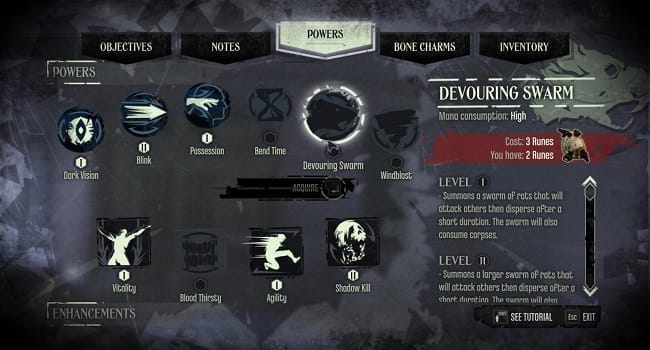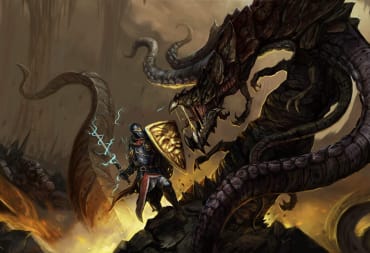A game full of features, mechanics, and gameplay variety is nothing but a good thing right? Well sure, if it is done correctly, but that is not usually the case. It seems now that there are many things added to one game or another just for the sake of saying it exists, regardless of the quality of gameplay attached to that feature. That in essence is the fallacy of feature variety. This is particularly true of AAA titles that try to pack in as much as possible to show off things here and there as a part of the marketing of a game up until its release.
I think a prime example of this is Watch Dogs, especially since the mentality of having a bunch of different features is mostly in open world games. Watch Dogs has some things going for it, but it has a lot holding it back, one significant part of which is that it gave you a bunch of different tasks that you could do and put them on your map. At first, it was kind of neat to stumble upon a crime that you could then go and try to prevent. However, it quickly became overwhelming with how many distractions the game was throwing at you. There was a convoy here, a crime happening nearby, a car to go steal over there, and a few other common "features."
Distractions are good, if done well (more on that later). Watch Dogs' distractions just became repetition to the point of becoming a chore. No longer did it become an interesting notion to find out what was going on over "there," but another annoyance or another task for you to put on your checklist, if you care enough about achievements. They quickly became something more similar to a collectable, rather than another piece of gameplay for you to enjoy.

This kind of mentality seems to still be going strong, which has me especially worried for games like Assassin's Creed Unity. At E3 2014, Ubisoft showed off some of the new features of the game, like stumbling upon a murder you can solve. I just hope they get a more involved an interesting treatment than something as simple as going to an area and using the Eagle Vision to find someone/something and then go assassinate someone. If it is nothing but that, then it will become something as unexciting as the many things in Watch Dogs. This seems to be a trend among Ubisoft, as noted in an article by Tim Colwill.
Ubisoft is not the only company that has this problem, however. And this is not only limited to open world games either.
This kind of problem happens all the time in games that are poorly designed. I know we all have come across a game that give multiple ways to play (shield and sword, two handed, bow and arrow, etc.), but it becomes increasingly obvious that one way of playing is better than the others by far. Or it may just be that, while some features do exist, they are far more boring (to most) than the others.
Dishonored is a culprit of this. I remember painstakingly going through the game making sure I killed the fewest amount of people as possible. What I remember most about that was just how tedious and repetitive it became. I so wanted it to be a good stealth game, which it was more or less marketed as, but it became painfully obvious that the lethal options in the game were way better than the stealth options, in terms of enjoyment. The features within the stealth path were just okay, and served somewhat of a purpose, but the stealth game basically became knowing where to blink.
What separates the games I have discussed from the ones I am about to look at, is the way the distractions, in open world games, or features are used in a game. There has to be a want to use the features in a game, which does not come in the form of a task list of objectives for a player to complete, for example.

For open world/sandbox games, Red Dead Redemption did the idea of multiple features/distractions right. They didn't become some kind of mission you felt obligated to do, or became a collectible. You were out in the world when something interesting would happen that would cause you to investigate or participate. In other words, Red Dead Redemption did random encounters right. They created and caught an interest, and made a want to pursue that interest.
Faster than Light (FTL) and Transistor both do a variety of features very well. In FTL, the whole design behind the game is the somewhat randomness of the features you come across during a playthrough forcing you to possibly pick things you have never used before. All of features can be utilized in multiple ways to make an engaging game that is different every time you play. Not only different, but fun as well. FTL does not give the impression that certain things were added just for the sake of having them there.
Transistor offers multiple ways to play the game as well, which you can change at any time you wish. Of course, some combinations of abilities are better in certain situations, but that then becomes part of the strategy to the game - knowing which abilities you need to use. The freedom of choice, and how most things are just as effective as others in most situations, give a good example of great variety in a game.
Ultimately, including features in a game that have little effort/time put into them will hurt a game. Developers/publishers need to step away from the mentality that more is better and that they should include something just for the sake of it. Having fewer features that are fully thought out in terms of how they work independently and with other features of the game is far more important.
Have a tip, or want to point out something we missed? Leave a Comment or e-mail us at tips@techraptor.net












